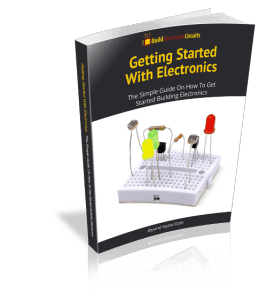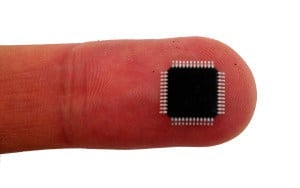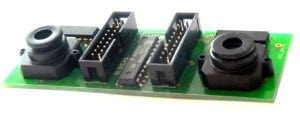Electronics for beginners is a topic I love. There are too many people out there trying to preach that electronics is hard. Of course it takes time to become an expert. But you can start having fun, and build useful things pretty much right away. And it’s easy!
Wouldn’t it be cool to make something like a remote control or an amplifier? Or maybe something more advanced like a quadcopter or a mobile phone?
Do these steps, and you will be well on your way to building whatever gadget you are dreaming about.
Step 1: Get An Overview Of The Basics
The first step to take, is to get a simple understanding of the basic concepts in electronics for beginners.
Voltage, Current and Resistance
- Current is measured in Amp or A
- Voltage is measured in Volt or V
- Resistance is measured in Ohm or Ω
Here is a nice illustration:
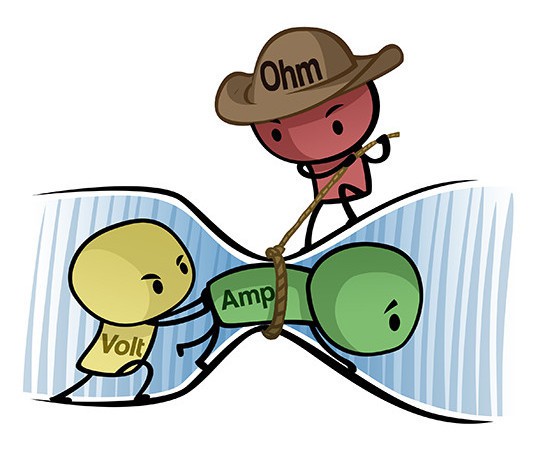
Learn more about the basics of current, voltage and resistance.
Schematics
Schematic diagrams are like recipes for electronics. They tell you exactly how to connect the components to make a certain circuit.
There are a gazillion schematic diagrams on the internet. So without knowing any theory, you can actually build some pretty advanced circuits. As long as you know the practical steps on how to build a circuit.
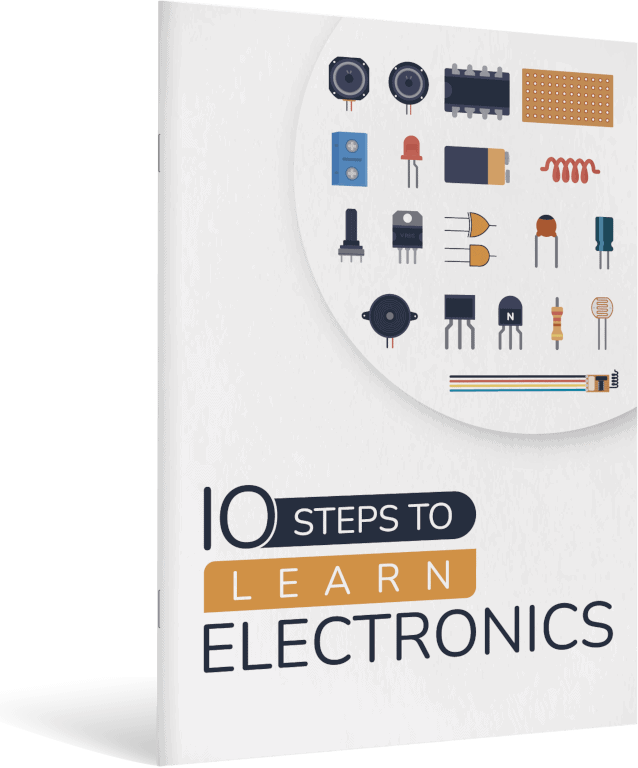
10 Simple Steps to Learn Electronics
Electronics is easy when you know what to focus on and what to ignore. Learn what "the basics" really is and how to learn it fast.
Basic Components
I wouldn’t spend too much time in this phase when you are starting out. Just read a bit to get your curiosity started. Then move on to the next step.
Start by skimming through my popular article on the basic electronic components. Or choose a specific component you want to learn more about from one of these articles:
- What is a resistor?
- How does a capacitor work?
- How does a transistor work?
- What is a diode?
- What is an inductor?
- What is an integrated circuit?
Then, as you progress and get curious about something, you can come back to this “Electronics For Beginners”-guide and learn more about the components.
Step 2: Start Building Circuits
If you would like to learn public speaking – what do you think is the best way to do it? Study it or actually do it? I think you would agree that you’ll learn more from actually speaking in public.
So as soon as possible, start building circuits. This is the number one thing to do if you want to learn electronics.
The easiest way to start is by building kits. You’ll get the board and all the components in one package. All you need to do is follow the instructions.
But, eventually you should free yourself from these instructions and start building circuits on your own. Start by building some circuits using breadboards and stripboards.
I have written a super practical eBook you might find helpful: Getting Started With Electronics.
The book gives you step-by-step instructions on building your first circuits – from a blinking light to a music-playing gadget. It also covers the basics of electronics: what components you need to know, and how to choose components for your circuit. I recommend you to read it and do the steps to get comfortable with building circuits.
To really get good at building circuits, I recommend my book A Beginner’s Guide to Circuits, a training manual for building circuits.
Step 3: Get an understanding of microcontrollers
Now that you have built some circuits and gotten your ears wet, it’s time to learn about microcontrollers. They are one of the most useful tools in electronics.
You can choose how deep you want to go at this step. Maybe you just want to read about the basics of microcontrollers, or maybe you want to go deeper play around with some more advanced microcontroller topics for a while.
One of the simplest ways to get started with microcontrollers is with Arduino. Whatever you choose, it’s useful to know about the possibilities you have with microcontrollers.
Step 4: Start a project you are passionate about
Now the REAL fun begins!
Take on a project that you feel inspired by. Something you think would be really cool to make. By doing this, you will meet many challenges. And these challenges are good, because they will show you what you need to learn.
In this phase you’ll probably learn some electronics theory, like Ohm’s law. And some useful circuit concepts, like the current limiting resistor.
A good resource for you, when starting your own project, is how to design your own schematics from scratch.
Step 5: Take it to the next level
Now that you have built your first project, it’s time to take your skill level to the next level. It’s time to learn to design your own circuit boards. When you learn this skill, you will be able to design really advanced gadgets like quadcopters, robots, mobile phones +++
Designing your own circuit boards is one of the many skills you’ll learn in my electronics learner’s club Ohmify.
Are you a beginner and want to learn electronics? How can I improve this “Electronics for Beginners”-guide? Let me know what you are struggling with by leaving a comment below. I’ll do my best to guide you on the right path.
And if you like it – please share it.
More Learn Electronics Tutorials
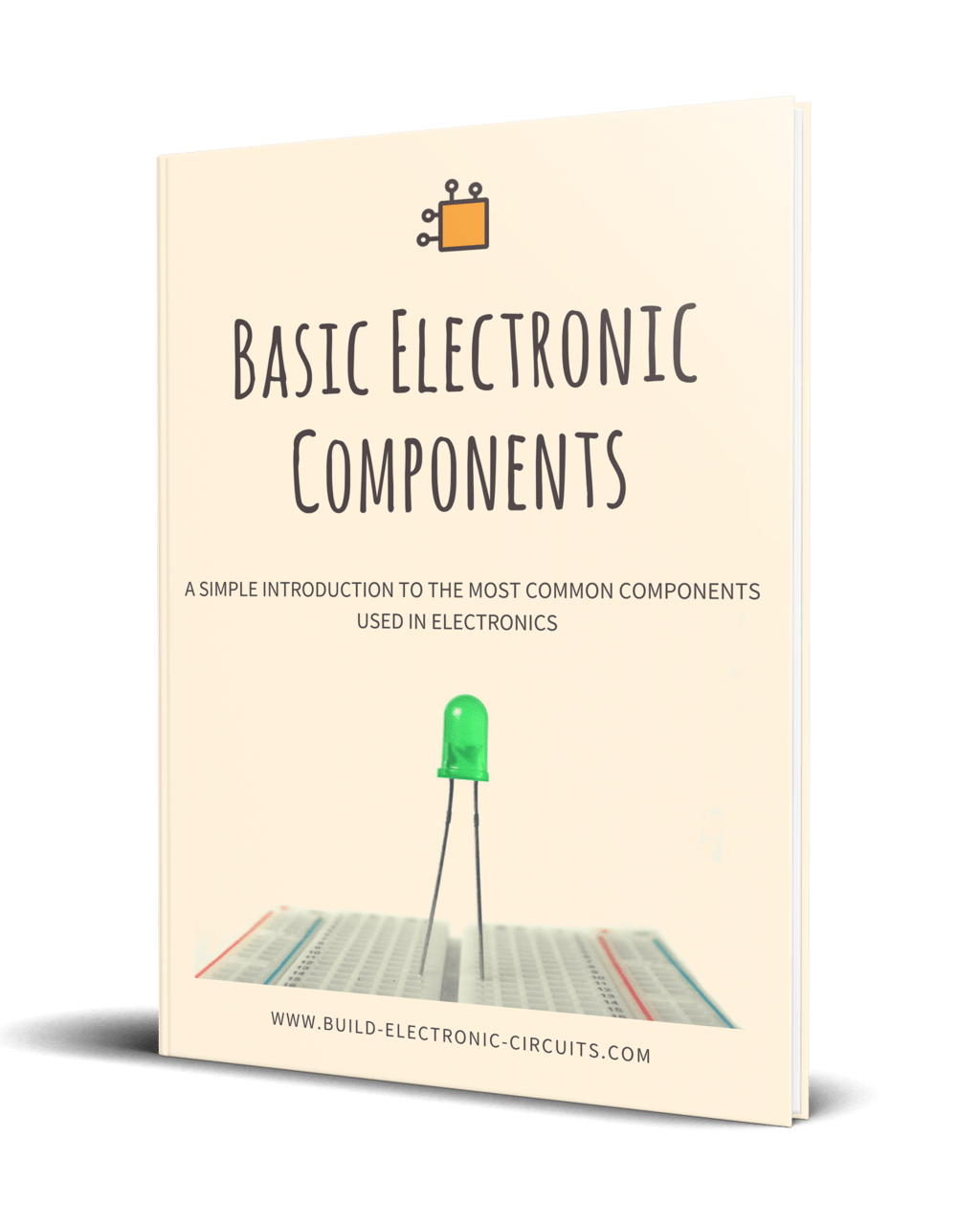
Get Our Basic Electronic Components Guide
Learn how the basic electronic components work so that circuit diagrams will start making sense to you.


